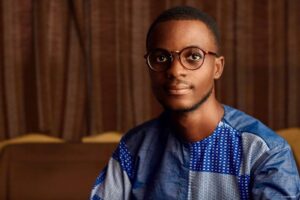Author: Kingsley Kojo Antwi
Year of Publication: 2020
Reviewer: Elikem M. Aflakpui
When I got the manuscript of Bosiako: The Bloodbath to read for the purpose of this review, it did not come with the Preface, Introduction, Dedication, Acknowledgement, About the Author and About the Book pages which I could use to create any meaningful connection to the author – Kingsley Kojo Antwi.
There is an age-long conversation about whether an author/a writer can be separated from their books/writings. I belong to the school that thinks it is difficult to do so. There is always some personal connection to what people write. If it is not their reality, it definitely is their fantasy. I use fantasy here to represent the broad scope of our imaginations including aspirations, the things we dread and fear, nightmares and the likes.
Coming from this background, when I read a book, aside the content, I am interested in the person who wrote the book. I am fascinated by the story behind the book, the process of writing the book, the inspiration, the challenges and the journey to the final output. I am, therefore, very interested in pages of any book that precedes the main content. When I edited my first anthology, I did not add those pages to increase the size of the book.
I got the background to the book and the life of the author from Antwi’s Facebook post titled The Bosiako Story. In that post that was also used to mark thirty years of his life on earth and announce the completion of the manuscript, he talked about how he found poetry in a rather unexpected way.
 Kingsley Kojo Antwi, Author of Bosiako: The Bloodbath
Kingsley Kojo Antwi, Author of Bosiako: The Bloodbath
In his own words, “Ten years ago, when I was fighting the social stigma of failing at suicide, I discovered poetry, although I didn’t know it was poetry”. This sentence is so important to understand, appreciate and discuss Bosiako: The Bloodbath.
Surviving suicide changes a man. It gives him a new sense of awakening and new lenses to view life from. It makes the person very raw, very real. He shares his truth of about life without any care of how different it could be from another person’s. I think the strongest connection between the author’s brush with death and discovering poetry which he shares with us in his debut book is that one way or another, it means something to us, even if it isn’t our story.
The book contains thirty poems. Maybe the number has to do with his three decades on earth too. Antwi employs a narrative style for most of the poems in the book. This, in addition to the fact that it contains only thirty poems, makes one think it will be an easy and a quick read but you will find that it is not. Mostly free verses, from the first poem titled Bosiako to the last titled The End, the author gives you something to brood on that you would not be in a hurry to read the next poem.
The collection is not only rich in the author’s style but also in how he infuses interesting and relevant aspects of himself, his personal and ancestral history and culture and a bit of Ghanaian history in general. You will find references to Asaase Yaa, Asamando, Ntim Gyakari, Anansi Stories and Tano River nicely and relevantly placed in the poems. It is a plus that there are footnotes to explain these references to people who are not acquainted with the stories behind them.
I could not put a finger on a central theme that cuts across the book but it explores themes such as the beginning of life and the journey through it with hope and faith, relationships, love, romance, religion, identity and self-discovery, beauty, loss, success and failure to the end of life.
My personal favourite of the collection is A Table Turned. Here are the last four lines of it.
I saw death giving hope to a deserted life
This was freedom
This is what we prayed for
A table turned
My recommendation to make the reading experience better that the author tries to organize the poems under sub-themes so that it tells a better story. The first and last poems are nicely placed but at some point, it gets jumbled up. It would also be nice to add some background to each of the poems to help the reader appreciate them better.
Bosiako: The Bloodbath is a bold book. Not so many authors are able to bare themselves the way this one has. You will enjoy his journey through life and wish that he writes another book to catalogue his daily growth since after his last ten decades on this path of the scribe.
I definitely recommend this book to anyone who would like to enjoy some really good pieces of writing and literature.










